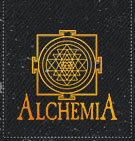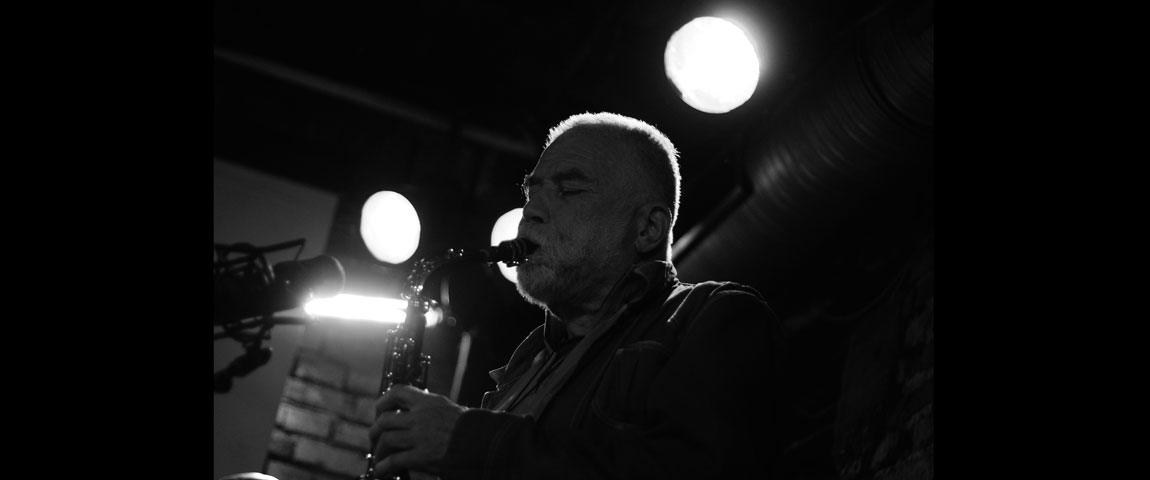Formerly a member of the Fluxus art movement, he quickly came to the conclusion that a career in visual arts is just not enough. To this day he designs the covers of his albums, and also creates litographs.
One could write whole books about this German saxophonist, perhaps starting with one particular landmark release. In 1986 Brötzmann’s octet released Machine Gun, and voices began to be heard that Europe’s true continental jazz has finally arrived. It was much more than just the fact that the band consisted of Europeans – Machine Gun was improvisation liberated! Brötzmann was one of the first artists representing authentic European jazz (the other notable figure being Django Reinhardt). From that point on jazz was no longer solely the Americans’ domain. The following decades were no less successful, with numerous albums, various projects and exciting collaborations. The way fans responded to them confirmed that the roughness and passion heard in Brötzmann’s music was what European music needed to form its own, independent identity. An identity with punk roots.
When Brötzmann appeared on the cover of Wire in 2012, David Keenan visited him in his home in Wuppertal. He wanted to meet this musical visionary who’s been trying to tear down music’s fundaments for half a century. And so he met the man portrayed in the document Soldier Of The Road(directed by Bernard Josse). Filmed for Brötzmann’s 70th birthday, it’s an intimate portrayal of a modern improvisation heavyweight. The document included extensive conversations with Brötzmann, as well as with Jost Gebers, Evan Parker, Han Bennink, Fred Van Hove, and Michael Wertmueller. The film also included footage from performances of Brötzmann’s various projects (Sonore, Chicago Tentet and The Damage Is Done), and a large amount of unique photos from the artist’s workshop – a glimpse into the world of a perhaps somewhat aloof, but definitely remarkable man, who still tours like crazy, moves listeners with his passion and almost crushes them to the ground with sound.
Peter Brötzmann has a loyal fanbase in Poland, and the anniversary of Kraków Jazz Autumn wouldn’t be complete without him. The fans probably still remember the Chicaco Tentet’s performance at Manggha in 2009.
Brötzmann surrounds himself with supremely talented musicians. Joe McPhee is both an extraordinary saxophonist and a colourful character. The Guardian called his album Nation Time a “grinning punk cousin to Miles Davis’s brutal and brilliant Bitches Brew.” What’s funny about this comparison is thatBitches Brew was released a couple of months after Nation Time. Like McPhee, the Miami-born Davies was self-taught. He was inspired to take up the saxophone by listening to John Coltrane, Albert Ayler and Ornette Coleman. He met composer Pauline Oliveros in the 80s and began studying her musical theories. He also collaborated with her Deep Listening Band. Other notable collaborations include Ken Vandermark, Evan Parker, Mats Gustafsson, Jeb Bishop, The Thing, Clifton Hyde, Jérôme Bourdellon, Raymond Boni and Joe Giardullo.
Briton Steve Noble (drums) studied under Nigerian master Elkan Ogunde. In the 80s he performed with Rip Rig + Panic together with Neneh Cherry. He traveled the length and breadth of Europe, steadily gaining experience. Since then, Noble has collaborated with Derek Bailey, Lol Coxhill, Ikue Mori and Tristan Honsinger, among others. He also composes film scores and runs his own label Ping Pong Productions.
Double bassist John Edwards is known for his ability to extract any sound he wishes from his instrument. When Edwards’ older brother started a punk band, the then 14-year old John bagan to explore music. By the time he was 18, he was living in squats and playing music, inspired by Lol Coxhill and Bruce Turner. Since then, he crossed paths with some of improvisations’ greatest figures. He’s performed with Louis Moholo Moholo, Wadada Leo Smith, Evan Parker, Mats Gustafsson, Sunny Murray, Marshall Allen (Sun Ra’s Arkestra), Kenny Wheeler and John Tchicai.
Hamid Drake remains one of the finest drummers in improvised music. He’s associated with the Chicago jazz scene, has worked with Fred Anderson and studied various percussive instruments from around the world. He’s been collaborating with Adam Rudolph since 1976, and in 1977 he became a member of the Mandingo Griot Society. He has also occasionally worked with Don Cherry. Fans praised him for his collaborations, including the duet with bassist William Parker and Indigo Trio with Nicole Mitchell and Harrison Bankhead. The audience of Krakow Jazz Autumn will certainly remember Drake’s performance with Wacław Zimpel’s group Hera in 2012. The performance was recorded and released the following year in the form of Hera’s third album called Seven Lines.
William Parker is a charismatic free jazz double bass player, who draws his wisdom from Sufi poetry. Since the 80s he’s been one of the most prolific animators of the New York avant-garde scene. This accomplished multi-instrumentalist has worked with such notable musicians as Bill Dixon, Sunny Murray, Billy Higgins, Alan Silva, Rashid Ali, Ed Blackwell, Don Cherry and Cecil Taylor. Together with Hamid Drake they are considered by many to be the best rhythm section in the world.
The band’s lineup is completed by the excellent Finnish drummer Peeter Uuskyla, and Heather Leigh on electric steel guitar, an instrument seldom used in improvised music. This will be the first time she performs in Poland.
A combo like this promises electrifying live performances. The band will be in Kraków for four days. You can see them at Alchemia (5, 6 and 8 November) and on Saturday at Manggha Museum of Japanese Art and Technology (7 November).
Tickets Alchemia – 30 PLN in advance, 40 PLN on the day of the show
Tickets MANGGHA – 60 PLN in advance, 80 PLN on the day of the show


